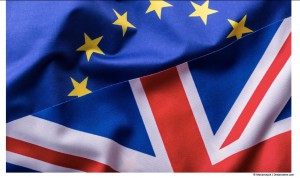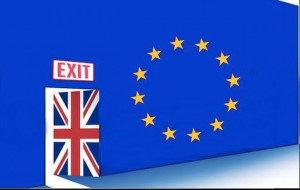Context
On June 23rd, the United Kingdom (UK) will vote in a referendum on whether to stay within the European Union (EU) or withdraw. A decision to withdraw raises several options, which are not subject to the referendum but presumably would be decided by the UK government. Absent full EU membership, the UK government could try to join the European Economic Area (EEA), an arrangement between three of the four members of the European Free Trade Association (EFTA) — Iceland, Liechtenstein and Norway — and the EU. The UK would first have be accepted into the EFTA, which also includes Switzerland. Switzerland held a referendum whether to join the EEA and rejected it. Subsequently, Switzerland negotiated a series of bilateral agreements with the EU, separate from the EEA, allowing it to participate in the EU internal market. Whether the UK would be required, or would decide, to hold a similar referendum is not clear.
The EEA allows for the free movement of person, goods, services and capital between the EU 28 members and three members of EFTA. If the UK was successful in joining the EEA, and EFTA, many if not most environmental laws (e.g., pollution control, waste, chemicals) would still apply to the UK. While it would have some ability to participate in EU policy decisions, any such participation would certainly be limited and less than what the UK has now as a full member of the EU.
Certain environmental laws and policies do not apply to the EEA countries including, importantly, the Habitats Directive and Bathing Water Directive, the Common Agriculture Policy (CAP) and the Common Fisheries Policy (CFP). For example, as the CFP would not apply, the UK would not be bound by the EU fishing quotas, nor would the financial support under the CAP be available. The UK budget is about £3 billion for the period 2013-2020 for agri-environment policy and two-thirds is funded by the EU under the CAP.
Instead of joining the EFTA, and EEA, the UK could try and negotiate a series of bilateral agreements with the EU, as Switzerland has done. In such a case, most EU environmental legislation would not apply to the UK. However, like for businesses in any other non-EU country, if a UK company wanted to export products to the EU, a most likely scenario, then they would have to comply with EU product standards, in part derived from concerns for environmental impacts from the products, e.g., pesticides. Not being a Member of the EU, the UK would have limited ability to affect policies and legislation on product standards.
The decision of whether to withdraw will most likely turn on anticipated and feared financial and economic consequences of a Brexit, and the impact on immigration issues. But many are concerned that there will be significant adverse consequences for the protection of the environment in the UK, with possible ramifications for the EU environmental regime, in case of a Brexit.
Implications of Brexit for the Enviornment in the UK and EU
Whatever else should follow from the decision, it is likely that the UK reputation on environmental matters will not change much. In the early 1970s, when the UK joined the Common Market, it was known as the “Dirty Man of Europe,” in large part because of its polluted waters, high sulphur dioxide emissions, and the highest acid-rain levels in Europe. Over the years various UK governments have fought against environmental regulation on the rationale that its economic interests required less regulation. Sometimes, at the same time, the UK government was progressive on climate change issues and often helped to counter the regressive environmental policies of some of the newer members of the EU. Of course the thrust of the UK environmental polices changed with the shift from a Conservative government to Blair’s Labour government and back to Cameron/Osborne’s Conservative government.
While many environmental policies and legislation could be subject to significant impacts from Brexit, with or without EEA membership, we will focus on a few to provide some sense of what is at stake in the referendum. We will focus on several reports from the Institute for European Environmental Policy in collaboration with the all-party parliamentary environment group in the UK, and another with Wildlife Trusts, RSPB and WWF.
Climate Change
Targets and polices on climate change for Member states are largely formed by EU policies and legislation. As noted, the UK has been somewhat progressive in pushing for stricter standards and tighter targets. But particularly recently, the Conservative party has undermined renewable energies through its inconsistent energy policy and removal of subsidies for onshore wind power, its cut of subsidies for solar power and elimination of plans for zero-carbon homes. It has undermined local control over fracking and fostered local opposition to wind farms, and it has aggressively embraced fracking for gas and nuclear power. Its rationale is a vague argument that all this is necessary to protect consumers. At the same time it provides far more generous subsidies for fossil fuels and nuclear.
Offering some protection against backsliding on climate change as a result of any Brexit is the UK Climate Change Bill of 2008, and particularly its Committee on Climate Change. The act incorporates many of the progressive climate change policies of the EU and the Committee’s 5-year target setting has held the government’s feet to the climate change fire, at least so far. However, without EU-wide targets, and peer and other pressure from the EU, the Climate Change Act can be amended, the Committee disbanded.
As for global climate change negotiations, the EU has represented its Members and what happens in the UK with regard to climate change is largely a result of those negotiations. EU climate policies, and commitments to reduce greenhouse gases (GHGs), are embedded in its Emission Trading System (for power plant emissions and certain other industrial facilities and businesses), the Effort Sharing Decision (by which individual Members are assigned levels of emissions from the rest of their economy), and a series of other measures to reduce emissions (e.g., the CAP, transport and energy legislation). In the past the UK has often helped push some of the more reluctant Members to adopting tougher targets. As the report notes, “the UK has consistently called for the use of market-based instruments, principally the ETS, to drive emissions reductions, and has been less keen on technology specific approaches on renewables, energy efficiency, and vehicles emissions.” As a result of a Brexit, the report suggests that in the future the EU might be less ambitious in caps for emissions, but also perhaps more supportive of technology-based solutions, especially for renewable energy and energy efficiency.
Back home in the UK, in the case of a Brexit, we can expect, as noted above, more reliance on natural gas from fracking and nuclear to underpin any global obligations it commits to. We can also expect less support for renewables. The report concludes” that future policy on decarbonisation of the UK economy will be less ambitious, with a consequent chilling impact on low-carbon investment decisions.” Whether the UK can satisfy any significant reductions in GHGs from gas and nuclear remains questionable.
Air Pollution
With a Brexit, and no agreement to join the EFTA and EEA, the UK would not have to comply with EU air standards, and also of course would not be subject to the threat of EU fines for failure to comply with air standards. As we have seen the UK government has steadfastly fought against complying with EU air standards, and only litigation by ClientEarth and the threat of EU fines has forced the government to take some, albeit inadequate, action to address the serious air pollution in UK cities. The Client Earth litigation necessarily goes on to ensure the government does more than delay and obfuscate its commitments to provide its citizens with breathable, non-toxic air.
It does not take much foresight to see that without the EU legislation and threat of fines, very little would be done by the UK government to clean the polluted air of many large cities.
Other Areas of Concern
There are a myriad of other EU environmental laws that affect industries and businesses, including in the transport and energy sectors, all of which will be subject to change, especially if the UK goes it alone outside the EEA. See Table 1 and discussion on pages 11-15.
One example will illustrate the impact of a Brexit. EU law is governed by the precautionary principle that holds that the burden of proof about absence of harm falls on those proposing an action, not those opposing it. In effect, manufacturers of new products, including chemicals, must prove their safety before they are introduced into the market. In the US a new product can get approved and put in the market unless it can be proven there are risks from the new products. Perhaps most controversially, genetically modified organisms (GMO) have been withheld from the EU market based on the precautionary principle, while they have been largely successful in getting into markets in the US. If the UK withdrew from the EU, then the precautionary principle likely would not be adopted and new products could be introduced more easily.
Clean water is also an important issue in the UK and EU. A recent report from the EU indicated that 95% of British beaches are clean enough to swim in, a sharp contrast to 1991 when 25% were too dirty to swim in. It was the threat of EU infringement prosecutions and beach closures that led to the marked improvement. Supporters of the UK remaining in the EU point to such results as an example of how EU membership has driven dramatic clean up of the environment.
Devolved Administrations
If the UK has to remove all the national legislation on environmental, and other matters that was necessitated by EU Directives, many issues may arise about which devolved administrations, in Northern Ireland, Scotland and Wales, would be affected. And who should make that determination.
Scotland will probably vote heavily in favor of staying in the EU and a Brexit could trigger another referendum in Scotland where a Scotch exit, or Scexit, from the UK would be at play.
In Northern Ireland (NI), a Brexit would certainly undermine any cross-border or all-island efforts to address common environmental issues since each would have very different environmental regimes. And of course the resurrection of physical borders between NI and the Republic of Ireland, possibly to stop immigrants from getting access to the UK, would be a painful and major step backward from the fragile peace that exists at the moment. It appears that the majority of people in NI are opposed to Brexit.
Conclusion
One advantage likely anticipated by those favoring a Brexit is that environmental regulations could be weakened by the UK, giving its business interests a competitive advantage as reflected in a recent headline from The Guardian: “Brexit would free UK from ‘spirit-crushing’ green directives, says minister.” But that is a false hope. Any negotiations on the UK’s participation in the EEA or in bilateral agreements with the EU, will likely be tough on the UK as the remaining Member states will likely be unwilling to give UK business interests an advantage from abandoning strict environmental protection standards and policies.
As we have seen, the Conservative government in place in the UK has opposed many environmental protection efforts and renewable energy initiatives. The toxic, dangerous air of many UK cities attests to the failure of the government to pursue a protective, progressive environmental agenda and is reminiscent of the old days in the 1970s. We can certainly expect more of the same if the UK leaves the EU, and it is likely that the UK would return to its former reputation, only now it would be known as the “Dirty Outlier” rather than the “Dirty Man of Europe.”
Sources
David Baldock, Andrew Farmer and Martin Nesbit (Institute for European Environmental Policy), Brexit – the Implications for UK Environmental Policy and Regulation. A special independent report commissioned by the all-party parliamentary environment group (March 2016). ieep.eu/assets/2016/IEEP_2016_Brexit_Implications_for_UK_Environmental_Policy_and_Regulations.pdf
Institute for European Environmental Policy, in collaboration with Wildlife Trusts, RSPB and WWF, The potential policy and environmental consequences for the UK of a departure from the European Union www.ieep.eu/assets/2000/IEEP_Brexit_2016.pdf
ClienEarth, Pollution laws: A positive reason to remain in EU says Labour (17 May 2016). www.clientearth.org/pollution-rules-positive-reason-remain-european-union/
“95% of British beaches clean enough to swim, EU tests show,” The Guardian (25 May 2016). www.theguardian.com/environment/2016/may/25/95-of-british-beaches-clean-enough-to-swim-eu-tests-show
“UK renewables cuts ‘risk slowing shift to clean energy’,” The Guardian (24 May 2016). www.theguardian.com/environment/2016/may/24/uk-renewables-cuts-risk-slowing-shift-to-clean-energy
“Brexit would free UK from ‘spirit-crushing’ green directives, says minister,” The Guardian (30 May 2016). www.theguardian.com/politics/2016/may/30/brexit-spirit-crushing-green-directives-minister-george-eustice






No comments yet, add your own below